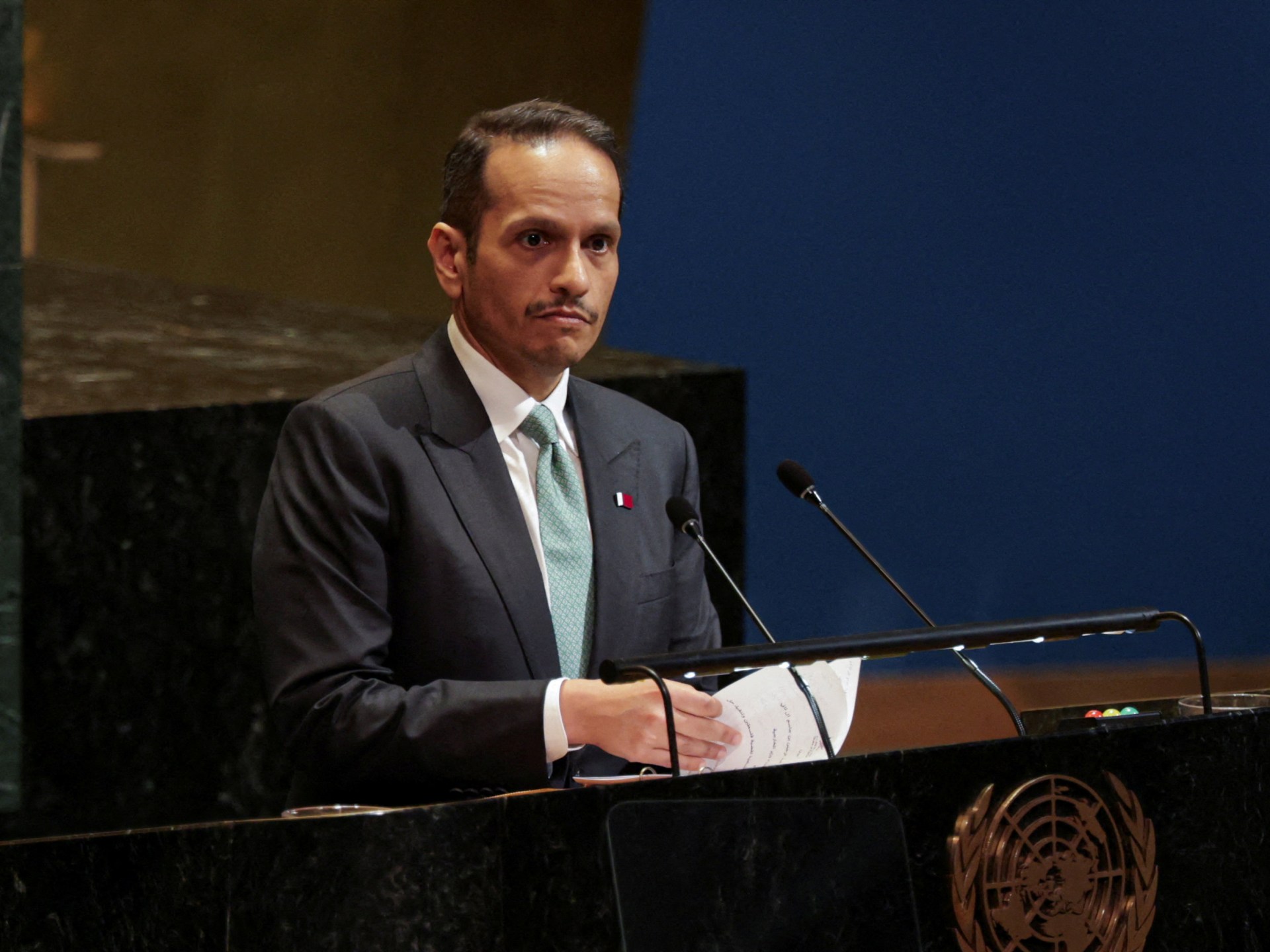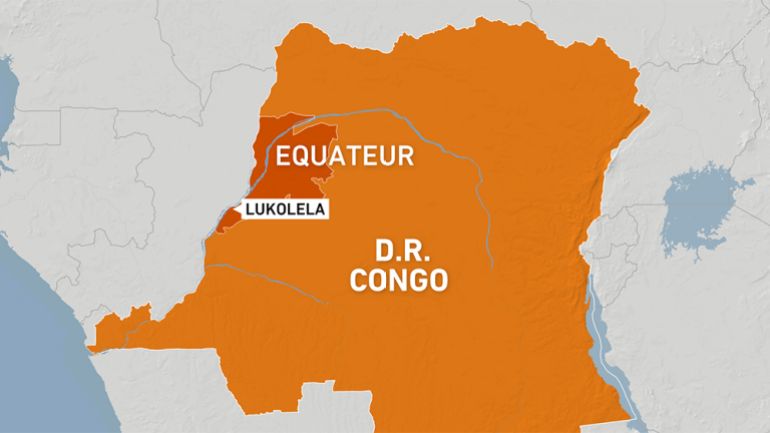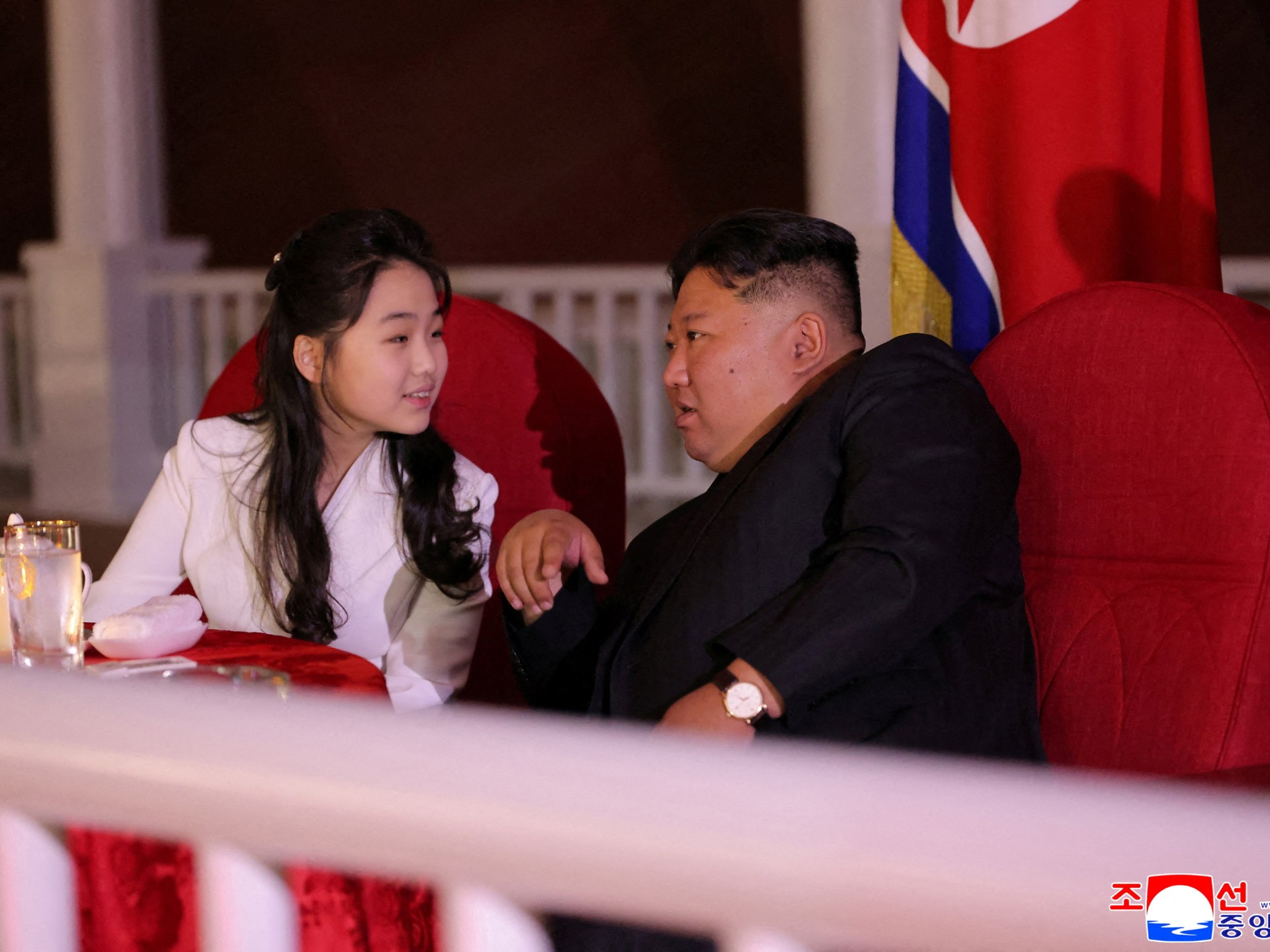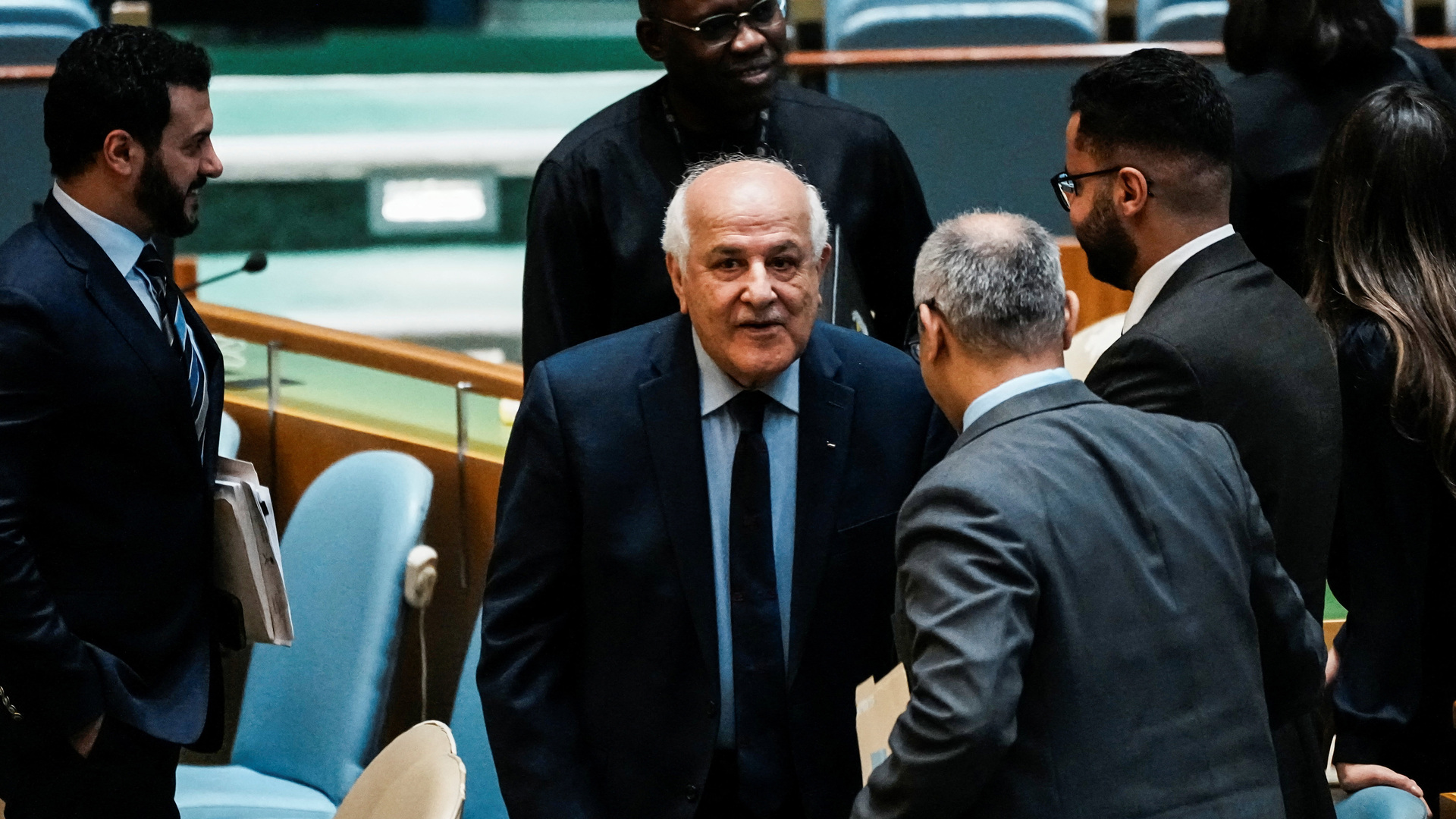LIVE: Police arrest 22-year-old Tyler Robinson for Charlie Kirk’s murder



Qatar’s Prime Minister Sheikh Mohammed bin Abdulrahman bin Jassim Al Thani is meeting United States President Donald Trump in New York in the wake of Israel’s deadly strike on Doha this week.
Sheikh Mohammed, who is also the country’s foreign minister, has been engaged in a flurry of diplomatic activity in the US since Israel’s attack on a Hamas meeting in Doha on Tuesday, which killed a Qatari security official and five Hamas members who were discussing a new deal proposed by Trump to end the Gaza war.
list of 3 itemsend of list
Ahead of Friday’s dinner meeting with the US president, Sheikh Mohammed met US Vice President JD Vance and Secretary of State Marco Rubio at the White House, where they discussed Israel’s strikes and the US-Qatar security arrangement, according to Al Jazeera’s Kimberly Halkett.
Washington counts Qatar, which hosts its Al Udeid airbase in the desert outside Doha, as a strong Gulf ally.
Trump has already said he was “very unhappy” about Israel’s targeting of Qatar, which appeared designed to derail ongoing Israel-Hamas ceasefire talks.
“The concern is that the relationship between Qatar and the United States has become increasingly complicated as a result of those strikes, so they’re looking for a path forward on both of those issues,” said Al Jazeera’s Halkett, reporting from Washington, DC.
Halkett said Friday’s scheduled meeting with Trump would “continue the conversations regarding Israel’s attack on Doha earlier this week and the negotiations to end Israel’s war on Gaza”.
The location and time of the dinner remain unclear, but Trump is currently in New York and is staying at his eponymous Manhattan tower.
This week has also seen the Trump administration engaged in a balancing act between Middle East allies and Israel.
The issue was brought to the fore on Thursday, when the US – which traditionally shields Israel on the international stage – joined fellow members of the United Nations Security Council in condemning the country for its attack on Qatar.
But in what appears to be a show of continued support for Israel, Rubio will arrive in Israel this weekend for a two-day visit before attending an upcoming UN summit on September 22, where a number of Western countries plan to recognise a Palestinian state.
That meeting signals growing international momentum towards a viable post-conflict settlement for Israel and Palestine, which was manifest at Friday’s meeting of the UN General Assembly, which endorsed a resolution pushing for a revival of the two-state solution.
France and Saudi Arabia have been instrumental in pushing for “collective action to end the war in Gaza, to achieve a just, peaceful and lasting settlement of the Israeli-Palestinian conflict”, which has so far killed at least 64,756 people.
During his visit to Israel, Rubio will speak to leaders about “our commitment to fight anti-Israel actions, including unilateral recognition of a Palestinian state that rewards Hamas terrorism”, State Department spokesman Tommy Pigott said in a statement.

Dubai, United Arab Emirates – When cricketers from India and Pakistan step onto the field for their Asia Cup 2025 match on Sunday, a lot more than two points will be on the line, according to cricket fans and experts.
The match at the Dubai International Cricket Stadium will be played under the cloud of lingering hostility after their intense four-day conflict in May.
list of 4 itemsend of list
While an all-out war between the two cross-border nations was prevented after an internationally brokered ceasefire, a sense of bitterness remains.
“People in India have been very angry about the match ever since this fixture was confirmed,” Kudip Lal, an Indian cricket writer, told Al Jazeera.
“They feel that it’s not right to play this match while the overall relationship between both countries is so strained,” he explained.
“It’s the worst time for an India-Pakistan match.”
Lal said that fans in India see the fixture as a money-making avenue for the Board of Control for Cricket in India (BCCI), whom they blame for trying to cash in on the profit generated by these high-profile clashes.
Lal believes the BCCI, widely regarded as the most wealthy and powerful cricket board in the world, could have “easily skipped” the match.
“If the Indian government has stopped issuing visas to Pakistanis, if the diplomatic ties are suspended and Pakistanis visiting India have been sent back, then why have the cricketers been asked to play this match in the aftermath of a war?” Lal questioned.
He expressed fears of a backlash in case India lose the Group A fixture.
Whenever India and Pakistan play, emotions run high and a loss is not taken well by fans on either side of the border.
In the past decades, players’ homes have been torched, their family members have been threatened, and effigy-burning protests have been carried out on the streets.
The current political climate between India and Pakistan is worse than it has been in several decades.
Despite the political deadlock between the nuclear-armed neighbours, the recent on-and-off-field exchanges between players have been fairly cheerful.
When India last played Pakistan in the Asia Cup in September 2023, the two key talking points were Virat Kohli’s utter dominance of Pakistani bowlers and the countless feel-good moments shared between both teams.
The match was played in the middle of the monsoon season in Sri Lanka, where fans cheered for both teams regardless of their allegiances and danced away their worries during the countless rain delays.
Pakistani fans were seen declaring their nation’s love for Kohli, and the festive atmosphere spilled over onto the pitch.
There were memorable player-to-player exchanges that were plucked right out of a social media manager’s dream.
Pakistan’s Shaheen Shah Afridi swapped his on-field aggression for off-field warmth as he handed India’s Jasprit Bumrah a gift hamper for his newborn son. Cue millions of retweets and shares on X and Instagram.
Social media was also flooded with reels highlighting the “bromance” between Kohli and Pakistan allrounder Shadab Khan.
This time, however, experts do not foresee similar public displays of goodwill and friendliness.
“The friendship and warmth seen in the past will not be on display because anything can be blown out of proportion by impassioned fans, and the smallest move can agitate the public,” Sami Ul Hasan, former head of the International Cricket Council’s (ICC) media and communications department, said ahead of the match.
When Pakistan beat India by 10 wickets at the ICC T20 World Cup 2021, Pakistan’s captain Babar Azam and wicketkeeper Mohammad Rizwan were warmly embraced by Kohli, and all three shared a hearty laugh while walking off the pitch.
“We can’t expect similar scenes to unfold on Sunday,” Hasan said.
“The interpretation and optics of an overtly friendly encounter could go very wrong, and things could blow up on either side of the border.”
Hasan, who has worked with cricketers and cricket officials, said the players will attempt to bat away political questions by saying they are not meant to deal with political matters.
“Sports and politics can never be separated, but athletes aren’t politicians, so they can’t be expected to act like diplomats.”
Despite the heated atmosphere and tense build-up to the fixture, some fans believe the match can still be seen as just another India-Pakistan match.
“Politics shouldn’t be mixed with cricket, which has always helped ease the tensions, so why should it be used as an avenue to propagate politics?” Asad Khan, a Pakistani fan, said.
“When you bring political agendas into cricket, it ruins the game and causes unnecessary stress for the players.”
Khan urged fans to put aside the politically and religiously motivated chants at cricket stadiums and instead enjoy a now-rare India-Pakistan match.
Given the years-long halt in bilateral cricket series between India and Pakistan, their fixtures are limited to multination tournaments.
Cricket fans are hopeful that both teams will not give in to the politically-charged atmosphere and help lighten the mood.
“The players should do their jobs as cricketers and the fans should treat it as just another game,” Ali, a Pakistan fan, said, told Al Jazeera in Dubai.
“Why must the cricketers worry about what happened on the border four months ago,” Ali
But cricket expert Lal believes otherwise.
“When the two teams enter the field on Sunday, they can’t be expected to be completely detached from the conflict. It will play on their minds.”
A hot and humid September evening in Dubai cannot be blamed solely for turning the “Ring of Fire” stadium into a cauldron.
Come Sunday, the latest chapter in a decades-long bitter rivalry will have the players and fans on the edge.


Two separate boat accidents this week in northwestern Democratic Republic of the Congo (DRC) have killed at least 193 people and left dozens missing, authorities and state media said.
The accidents happened on Wednesday and Thursday, about 150km (93 miles) apart in the Equateur province.
list of 3 itemsend of list
One boat with nearly 500 passengers caught fire and capsized on Thursday evening along the Congo River in the province’s Lukolela territory, killing 107 people, DRC’s Ministry of Humanitarian Affairs said in a report.
The report said 209 survivors were rescued following the accident, involving a whaleboat near the village of Malange in Lukolela territory.
A memo from the Ministry of Social Affairs, seen by the Reuters news agency, said 146 people were missing.
A day earlier, in a separate accident, a motorised boat capsized in the Basankusu territory of the province, killing at least 86 people, most of them students, state media reported.
Several people were missing, but the reports did not give a figure for how many.
It was not immediately clear what caused either accident or whether rescue operations were continuing on Friday evening.
State media attributed Wednesday’s accident to “improper loading and night navigation”, citing reports from the scene. Images that appeared to be from the scene showed villagers gathered around bodies as they mourned.
A local civil society group blamed Wednesday’s accident on the government and claimed the toll was higher.
Search operations took place after the accidents, with naval personnel and community volunteers combing the banks while authorities pledged medical care for the injured, assistance to bereaved families and the repatriation of survivors to their places of origin and destination.
River transport is a lifeline in DRC’s vast rainforest regions, where old, wooden vessels are the main form of transport between villages. It is also often cheaper than travelling on the few available roads.
However, the vessels are poorly maintained and crumbling under the weight of passengers and their goods, and accidents are frequent.
On such trips, life jackets are rare, and the vessels are usually overloaded.
Many of the boats also travel at night, complicating rescue efforts during accidents and leaving many bodies often unaccounted for.

North Korea has further tightened its grip on its population over the past decade, executing people for activities like sharing foreign TV dramas, according to a major United Nations report.
The UN Human Rights Office said on Friday that tech-enabled state repression under the Kim dynasty, which has governed with absolute power for seven decades, had grown over a decade of “suffering, repression, and increased fear”.
list of 3 itemsend of list
“No other population is under such restrictions in today’s world,” concluded the agency’s report, which is based on interviews with more than 300 witnesses and victims who had fled the country and reported the further erosion of freedoms.
“To block the people’s eyes and ears, they strengthened the crackdowns. It was a form of control aimed at eliminating even the smallest signs of dissatisfaction or complaint,” recounted one escapee, cited in the report.
James Heenan, head of the UN Human Rights Office for North Korea, told a Geneva briefing that the number of executions for both normal and political crimes had increased since COVID-era restrictions.
An unspecified number of people had already been executed under new laws imposing the death penalty for distributing foreign TV series, including the popular K-Dramas from South Korea, he added.
The clampdown has been aided by the expansion of “mass surveillance” systems through technological advances, which have subjected citizens to “control in all parts of life” over the past 10 years, the report said.
Heenan also reported that children were being made to work in forced labour, including so-called “shock brigades” for tough sectors such as coal mining and construction.
“They’re often children from the lower level of society, because they’re the ones who can’t bribe their way out of it, and these shock brigades are engaged in often very hazardous and dangerous work,” he said.
Last year, the UN indicated that the forced labour could, in some cases, amount to slavery, making it a crime against humanity.
The sweeping review comes more than a decade after a landmark UN report documented executions, rapes, torture, deliberate starvation, and the detention of between 80,000 and 120,000 people in prison camps.
The new report covered developments since 2014, noting the government’s adoption of new laws, policies and procedures providing a legal framework for repression.
UN rights chief Volker Turk said in a statement: “If the DPRK [Democratic People’s Republic of Korea] continues on its current trajectory, the population will be subjected to more suffering, brutal repression and fear.”

The United Nations General Assembly has endorsed a resolution reviving a two-state solution between Israel and Palestine. It also calls for Hamas to end its rule in Gaza. Israel and the United States were among the 10 members who voted against it.